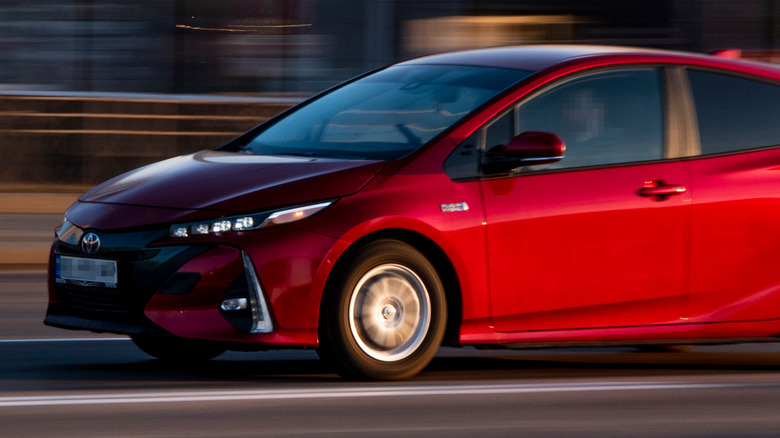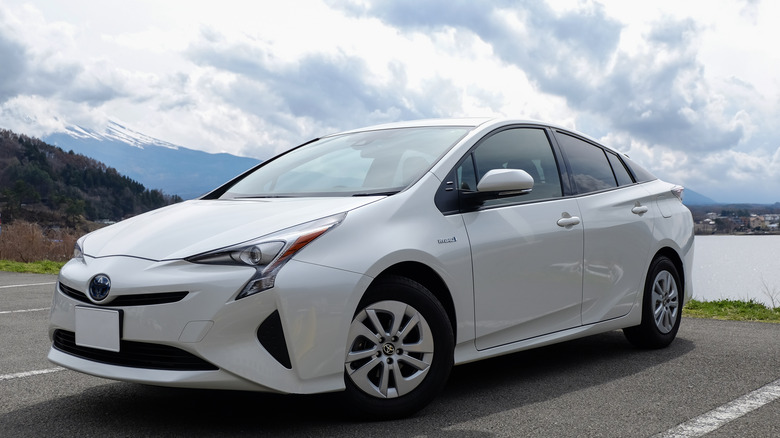How Long Does The Battery On A Toyota Prius Last?
Hybrid vehicles are even more popular these days, due in part to their superior MPG performance that equates to lowered gas expenses. This is an important consideration because of how high gas prices can get. It comes as no surprise that the Toyota Prius is still a popular hybrid vehicle among those who want a comfy and affordable driving experience that also lessens their carbon footprint and, by extension, their net impact on global climate change.
The Toyota Prius relies partially on a traditional gas engine and partially on an EV motor that draws energy from the nickel hydride battery. The battery itself is charged by regular use, so as long as you drive your car around regularly, it should stay healthy and give you plenty of mileage. That said, these batteries don't last forever. It's important to note that if a Toyota Prius battery does die on you, you may want to avoid replacing it — instead opting to get it repaired at a dealership. This can theoretically save you thousands of dollars, especially if your Prius is out of its service warranty period. Regardless, you probably won't need to replace your car's battery for quite a while.
Prius batteries can last around 15 years
According to Wrightgrid, you can expect your Toyota Prius battery to last between 10 and 15 years, especially if you take good care of it. However, there are a handful of factors that go into what makes a "healthy" battery. Wrightgrid noted that you can determine how quickly your Prius' battery is deteriorating by the frequency of voltage spikes, but you should get about 150,000 miles at the bare minimum before seeing any sort of problems in your car's handling.
You can keep your battery charged by driving your vehicle regularly, and by keeping is gassed up so that you aren't relying so heavily on your hybrid EV system. It's not unlike charging a very large phone; the healthiest charge level is somewhere between 30-80% at all times. You may also want to limit the number of "short" trips, or tours through populated urban spaces with many stop lights — or spaces with heavy traffic. Trips like these can put stress on your car's battery that lowers its lifespan. You may as well balance these trips out with a few longer trips to lower-density spaces such as freeways and rural roads, where you can give both your gas engine and electric motor some regular exercise.

